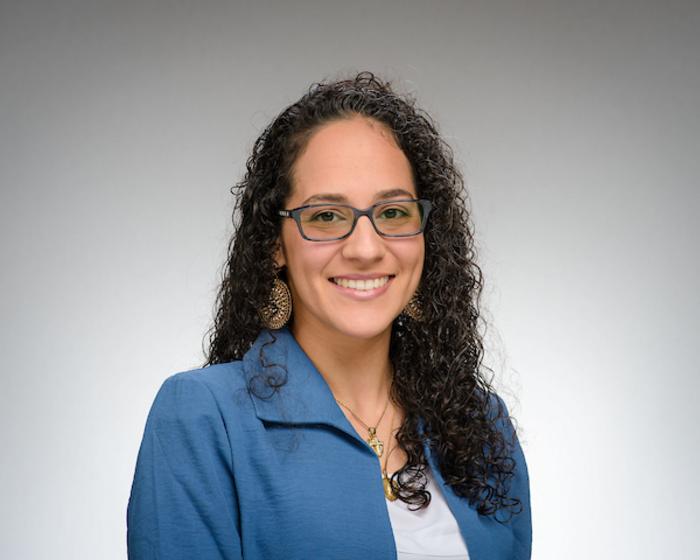Foster parents and caseworkers agree: Sexual-related risks are the top concern for online safety for youths in the U.S. child welfare system. But how these two groups approach technology access and other online risks is conflicted, according to research from the University of Notre Dame.

Credit: Photo by Barbara Johnston/University of Notre Dame
Foster parents and caseworkers agree: Sexual-related risks are the top concern for online safety for youths in the U.S. child welfare system. But how these two groups approach technology access and other online risks is conflicted, according to research from the University of Notre Dame.
In a study led by Karla Badillo-Urquiola, the Clare Boothe Luce Assistant Professor of Computer Science and Engineering at Notre Dame, 32 caseworkers across the U.S. were interviewed about the online risks encountered by adolescents ages 13-17 in foster care. Caseworkers shared how they are trained to manage online safety and the major challenges they face in their roles. Badillo-Urquiola then compared the results to her previous study, which included interviews with 29 foster parents of 42 foster teens on similar topics.
The research published in the Proceedings of the ACM on Human-Computer Interaction showed that caseworkers are mostly concerned with online activity that facilitates offline, physical risks such as sex trafficking, running away, illegal drug activity and physical fights. Additionally, caseworkers perceive technology as a facilitator for contacting unsafe people, such as previous abusers, and engaging in risky communication with strangers. Harassment like cyberbullying and more general online risks are considered secondary concerns, which caseworkers reported they don’t receive training for.
Both foster parents and caseworkers reported being overburdened with other challenges, forcing them to put online safety as a low priority.
“Foster parents shared that they don’t receive enough support from their caseworkers, but caseworkers said they are struggling too, with large caseloads and focusing on keeping kids physically safe,” Badillo-Urquiola said. “Online safety becomes an afterthought.”
In the U.S. child welfare system, caseworkers are legally responsible for the physical and social-emotional well-being of foster youths, with authority and responsibility over a child’s case. They also receive intense, mandatory training about sexual risks and sex trafficking for foster youth, but many depend on their personal experience instead when navigating these concerns.
Some caseworkers called the training outdated and obsolete due to technology advancing too quickly.
Meanwhile, foster parents receive no training and believe they do not get appropriate guidance from their caseworkers to address online safety concerns. However, the research showed that foster parents were more aware of foster youths’ interactions and experiences online, but they did not have the authority and preparation to manage these situations effectively.
“We see this tension between giving youth in foster care normalcy and keeping them safe,” Badillo-Urquiola said. “Foster parents may want to give foster children a phone because their other children have one and so do other teens, but the parents don’t want the foster child to fall into risky behaviors. The parents don’t know what measures to put in place that provides online access but keeps foster youth safe.”
Unfortunately, a lack of experience and a fear of online risks often cause foster parents to completely revoke access to technology for foster youths, contrary to the “normalcy” policies the U.S. child welfare system calls for.
“We get health services online, apply for jobs online, or even to buy a car you may want access to the internet. It’s also a way to connect and have a social system,” Badillo-Urquiola said. “Restricting technology so much can actually hinder the life skills that foster youth need.”
The study argues that the prioritization of physical safety over online and emotional well-being of foster youths is rooted in a lack of resources and support for caseworkers.
To help improve online safety for foster youths, the researchers proposed multiple socio-technical systems such as collaborative technologies for caseworkers and foster parents, a centralized incidents database to consolidate problem resolutions and best practices, online support forums for caseworkers and foster parents to connect and learn from each other, and training modules for caseworkers, foster parents and foster youths.
“Our world is shifting and society is becoming so technologically advanced, but our child welfare system isn’t advancing with it,” Badillo-Urquiola said. “The child welfare system is not supporting the challenges caseworkers, foster parents and foster youth are facing.”
This research was a multi-institutional collaboration among Notre Dame’s Badillo-Urquiola, Vanderbilt University’s Zainab Agha and Pamela J. Wisniewski, University of Central Florida’s Denielle Abaquita and University of Colorado’s Scott B. Harpin.
Journal
Proceedings of the ACM on Human-Computer Interaction
DOI
Article Title
Towards a Social Ecological Approach to Supporting Caseworkers in Promoting the Online Safety of Youth in Foster Care
Article Publication Date
26-Apr-2024



